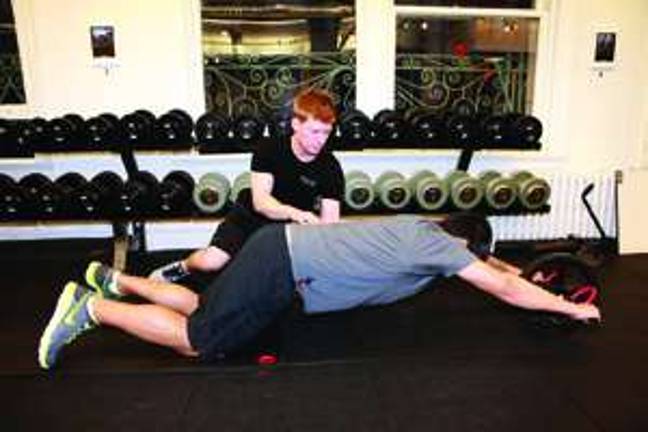Recession-Proof Career? Train to Be a Trainer

By Laura Shin Ten years ago, Debra Duby found herself wandering the streets of Manhattan, knocking on countless doors, shaking hands with strangers and posting flyers. At 27 years old, she was a newly certified personal trainer attempting to jumpstart a new career. "Like in any successful business, you need to put forth the appropriate amount of time and effort, but I have enjoyed the process and still do," said Duby, founder of Soul Salad Ltd. Duby left a successful career in technology recruitment and obtained a certification in personal training. "In my previous career, I had just lost the passion for it," she said. "My brother-in-law suggested I go into personal training and my husband was really supportive." Today, Duby is a successful nutrition coach and personal trainer with clients in Manhattan, Brooklyn, Connecticut and Westchester. The number of personal trainers in the United States is growing. According to the Bureau of Labor Statistics, employment of fitness trainers and instructors is expected to grow 24 percent from 2010 to 2020, faster than the average for all occupations. And career changers like Duby are big contributors to the growth, said Joe Masiello, co-founder of Focus Personal Training Institute, a personal training school in Manhattan. "A lot of people are switching out of their careers. I think the economy had a lot to do with that," Masiello said. "People were forced out of their jobs and some were faced with the choice to go back to something they hated or to make the jump." Aspiring trainers can choose from numerous organizations that offer personal trainer certification exams. Some of the most well-known organizations include the American College of Sports Medicine, the National Academy of Sports Medicine, the National Strength and Conditioning Association and the American Council on Exercise. Because there is little regulation in the fitness industry, almost anyone can become a trainer, Masiello said. No experience is necessary and certification exams only require some studying and a fee of a couple hundred dollars. "There is a clear divide in our industry: those who are educated and those with no experience," Masiello said. To become a qualified trainer with the best chances of landing a job, Masiello recommends practical, hands-on experience in addition to certification. Adults who want to invest in gaining experience can consider vocational schools like Focus Personal Training Institute, which offers a 300-hour program that includes classroom teaching plus hands-on experience for $5,000. There is currently a demand for older adults in the industry, said David Shar, COO of the American Academy of Personal Training, a nationally accredited school offering personal training education and certification. "The reason is that you're seeing more older people in the gyms, and they want to be trained by people of their generation who understand their conditions," Shar said. As far as pay goes, the 2010 median salary for trainers was $31,090 nationwide, according to the Labor Department. But New York trainers tend to make more, said Masiello. And after years of experience and building up your clientele, it can go up into the six figures, he said. Shar said he has seen students get paid $20-$25 per hour upon graduating and up to $80 per hour within a year of graduating. Duby, who started her own business instead of working in a gym, said, "You have to put in the work. There are people in personal training who make a really terrific living." There are many other perks, she added, including the ability to create your own schedule and having a job that she believes is "recession-proof." "Most people are interested in living healthier lives," she said. "If you're skilled at your job, understand customer service and know how to grow a business or you're open to figuring it out, there's no reason you can't succeed."